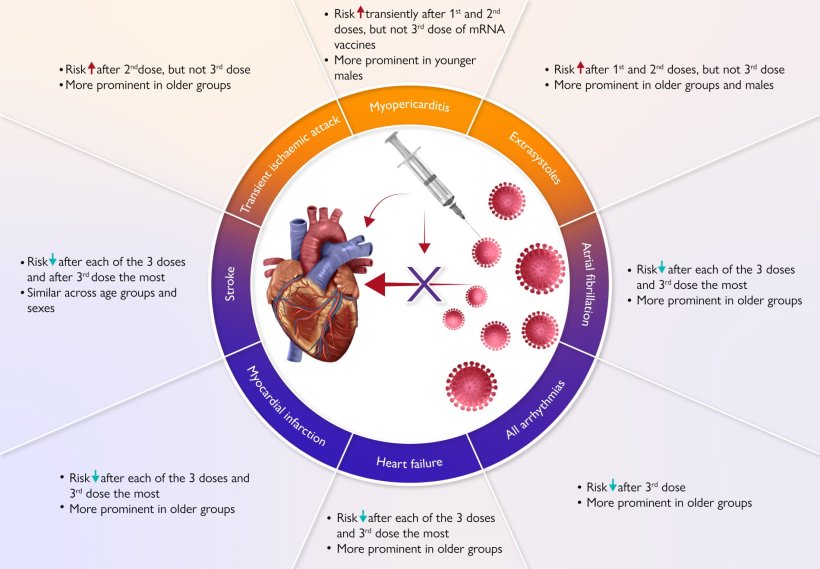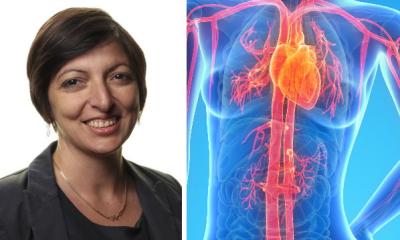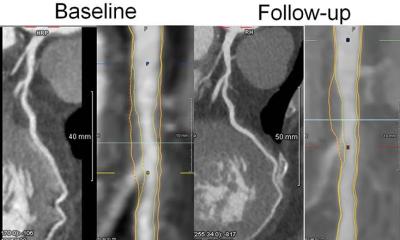
Image source: Xu Y et al., European heart Journal 2024 (CC BY 4.0)
News • Research on 'risk windows'
Covid vaccination reduces risk of serious cardiovascular disease, study finds
The Covid-19 vaccine aims to reduce complications and overall mortality from the disease. At the same time, some cardiovascular effects have been seen after individual doses of the vaccine.
A rare acute side effect is inflammation of the cardiac muscle or the pericardium in young men following mRNA vaccination. In terms of other cardiovascular effects, there has only been limited research and the results have been conflicting.
The current study at the University of Gothenburg, published in the European Heart Journal, is a register-based, nationwide study. It is based on data from the entire population of more than eight million adults in Sweden who were followed up in national healthcare registers for around two years, from the end of December 2020 when Covid-19 vaccination began until the end of 2022.
The increases in cardiovascular risk we saw following Covid-19 vaccination are temporary, and do not apply to the more severe conditions
Fredrik Nyberg
The researchers have studied ‘risk windows’ (the time immediately after a single injection of the Covid vaccine), dose by dose, in those who were vaccinated. The cardiovascular health after full vaccination has then been compared with the cardiovascular health of those who, at the same stage of the study, had not started any vaccination. The study includes risk analyses for a number of cardiovascular diseases related to both the heart and the brain: inflammation of the cardiac muscle or the pericardium, cardiac arrhythmia, heart failure, TIA, and stroke – the latter two being caused by impaired blood flow in the brain.
For most of the outcomes – particularly the more serious ones – there was a reduced risk of cardiovascular events after vaccination, especially after the third dose. The risk of cardiovascular events after being fully vaccinated was generally 20–30% lower than if no vaccination had been initiated. At the same time, the study also confirms the increased risk of inflammation of the cardiac muscle or the pericardium one to two weeks after a single mRNA injection against Covid.
The study also observed a temporarily increased risk of extrasystoles – additional heartbeats – after dose one (17% higher risk) and dose two (22% higher risk), and this was stronger among elderly and males. There was no increased risk of other serious cardiac arrhythmias after being vaccinated. The risk of stroke was lower after vaccination than without vaccination, while the risk of TIA was temporarily higher (13% higher risk) after a single dose of vaccination, mainly in older men.

Image source: University of Gothenburg; photo: Malin Arnesson, Johan Wingborg, Gunnar Jönsson
The research was carried out at the School of Public Health and Community Medicine at the University of Gothenburg’s Sahlgrenska Academy, with Fredrik Nyberg, a Visiting Professor in Register Epidemiology, and Yiyi Xu, an Associate Professor in Occupational and Environmental Medicine, having main responsibility for the study. Other authors include Mats Börjesson, a cardiologist and Professor of Sports Physiology, and Magnus Gisslén, an infection specialist, Professor of Infectious Diseases, and State Epidemiologist.
“The increases in cardiovascular risk we saw following Covid-19 vaccination are temporary, and do not apply to the more severe conditions,” says Professor Nyberg. “On the other hand, full vaccination significantly reduced the risk of several more severe cardiovascular outcomes linked to Covid-19, such as heart attack, stroke, and heart failure. This emphasizes the protective benefits of full vaccination.”
Source: University of Gothenburg
01.10.2024











